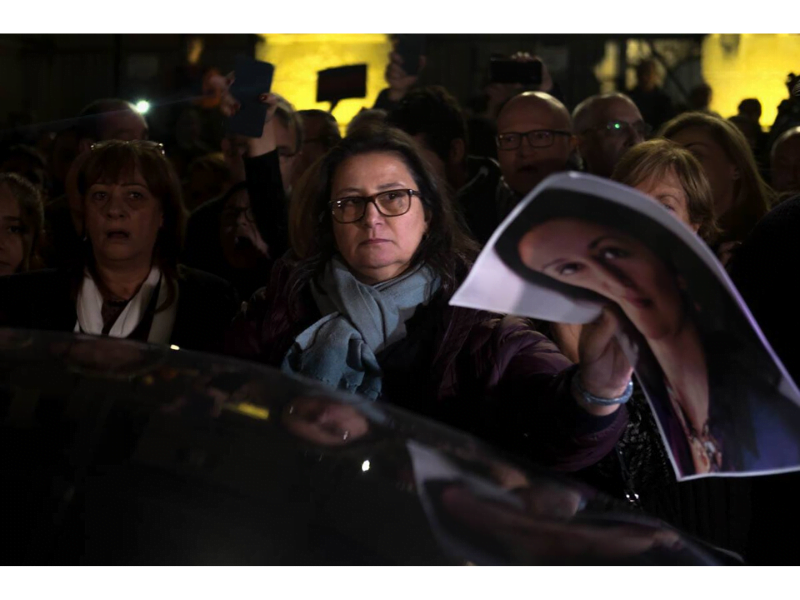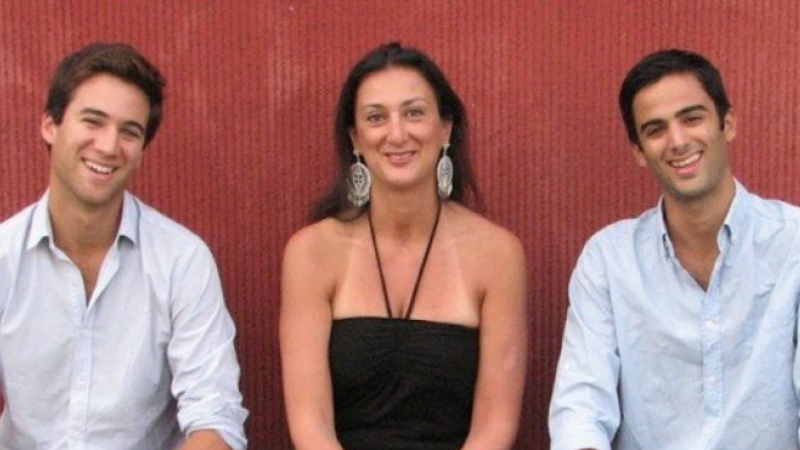The fall of Joseph Muscat and the rise of civil society protesting against corruption was triggered in an instant with the attempted escape of murder suspect Yorgen Fenech, which changed Malta’s political history forever.
The extraordinary set of events that took place in the last few weeks of 2019, which led to the arrest of Fenech, the resignations of chief-of-staff Keith Schembri, minister Konrad Mizzi and eventually Muscat was documented in the fourth and final episode of the series My Mother’s Murder – a podcast investigating the death of journalist Daphne Caruana Galizia by her son Paul for UK news outlet Tortoise.
He went down to the Portomaso yacht marina on 20 November 2019 – the morning of Fenech’s arrest to see the getaway yacht. “It remained a mystery to me why Fenech, who controlled assets worth hundreds of millions of euros in his early 30s chose a life of crime”.
Like the rest of his family, Fenech chose to deploy that wealth strategically through donations and gifts like expensive wine, football tickets and gold watches. The influence of the Fenech family over the governing class grew.
“Fenech, in particular, was so closely bound to Muscat that his arrest that morning could only mean one thing – this goes right to the heart of Muscat’s government,” Caruana Galizia said.
The arrest triggered a protest in Valletta that evening and hundreds of people turned up in front of Castille. Once the speeches were over, the organisers told the crowd to walk down Republic Street in the country’s capital to the journalist’s protest memorial outside the law courts, something that Caruana Galizia said they were in no mood for.
“As they were walking down Republic Street, reluctantly but angrily, and as we were walking by Parliament – an activist shouted ‘they are in Parliament’ and we went. And what a thing it was.”

Citizens had gathered in front of parliament in November 2019, demanding resignations and blocking the former Justice Minister, Owen Bonnici’s, car from leaving.
The crowd surrounded the parliament building and started shouting “get out, get out”.
Tina Urso, from civil society group il-Kenniesa, was among the first shouting outside parliament: “We were initially only five people outside and started screaming at the top of our lungs. There were only three policemen and said they were going to arrest us if we continued disturbing public peace.”
She saw a flood of people arriving and called out to them to join the group, which picked up the chants.
“That was the first time we were able to look at a politician in the face and tell him ‘you are corrupt and you shouldn’t be standing by this’. It was outrage that they held in for two whole years,” Urso said.
The crowd surrounded an official car with then Justice Minister Owen Bonnici sitting inside – the person who had ordered the removal of flowers and banners from the protest memorial on a daily basis and who has since been found guilty of breaching human rights by the Constitutional Court.
Urso said the lack of political accountability in the country was partly due to its own citizens who do not challenge, protest or demand answers. “So as the years pass by, politicians notice that they can get away with almost anything,” she said.
Paul also spoke to Nationalist MP and former Opposition Leader Simon Busuttil the morning after the first protest. Busuttil described it as a “defining moment” for Malta.
“The feeling was one I never experienced before – anger mixed with hope. It was electrifying but somewhat untested – never experienced and emotions were running very high”.
Busuttil pointed out the significance of Fenech’s arrest because he was someone who was linked to paying kickbacks to Schembri and Mizzi and was personally involved in the most important political electoral pledge that got them into power in 2013.
“This is where it all started – they built this power station and it is owned by the mastermind. It all links in – he has been paying corrupt and illegal money to the prime minister’s friends… so the consequences should be clear”.
Things moved fast. Fenech mentioned Schembri during his police interrogation and the chief of staff resigned.
“Of all the people implicated, Schembri was the last one I expected to collapse because he was so powerful and so close to Muscat. Two and a half years after we gave Schembri’s name to the police, he finally falls and I can’t believe that I was in Malta for that moment.”
Muscat refused to react to the news about Schembri. “We were finally getting to the full truth – it was looking like an EU Member State sponsored that assassination of a journalist – its own citizen,” Paul said.
He described feeling intense anger at the government – for suing his mother, and eventually the family, in court, for denying its involvement and instead accusing his brother, Matthew.
Things quickly picked up again – Muscat called an emergency Cabinet meeting and held a press conference in the early hours of the morning on 29 December 2019. Paul attended.
“It was a farce – a shaky looking Cabinet lined up behind Muscat… each minister looking like they had just seen a ghost, each one with a forced smile and Muscat presenting an image of unity.”
However, he had lost control but did not let his ministers speak. The journalists were “herded” but, before they could leave, they were locked in by a group of thugs who entered the room.
“There we were in heart of the prime minister’s office, locked in by thugs. I lost it,” Paul said.
Fenech was charged with being the mastermind of his mother’s murder a few hours later.
The rise of civil society protests was part of a change and a call for justice that would never end until the truth emerged, together with an assurance that it would never happen again.
“For now, let this be a lesson that corruption kills, evil will always win unless you fight it…and that one woman and a laptop – as they called her – can change everything”.
Listen to the full podcast by Paul Caruana Galizia for Tortoise.












